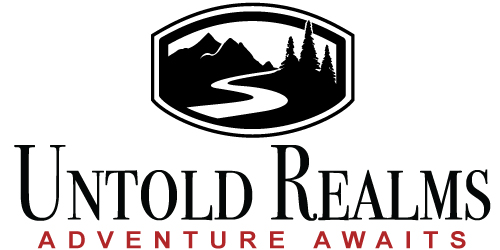Blades & Black Magic is an excellent fantasy roleplaying game–but it does not have a magic system (yet). That is planned for later this year when C.R. Brandon releases the official "Black Magic" part of the game. In the meantime, I’m working out my own ideas for using improvisational magic with Blades… and keeping it within the spirit of swords & sorcery.
Improvisational Magic
The game Blades & Black Magic is based on C.R.’s previous game, Heroes & Other Worlds, which in turn is a retro-clone of an original game, The Fantasy Trip. Both of those games had a discrete spell system for magic, where wizards learned a certain number of spells, which in turn had set effects and costs to cast.
That system works great, but can be confining–a wizard only knows a so much magic, with only so many effects. The benefit is both the player and the GM know exactly what the spell will do, and what it takes to cast. The drawback is that it limits what that wizard can do in any situation. That can be a big drawback.
On the other hand, other games that I found, including Zozer Games’ Fast Magic and Michael Brown’s 2d6 Magic, do things a little differently. They have an improvisational system, where a character has a certain "domain" of magic that places general boundaries around what he can do–fire, water, death, etc. Beyond that, the player explains what effect he wants his spell to have to the Referee, who then determines a difficulty and cost for the spell. The wizard attempts the spell, and it either success or fails.
The benefit of a system like this is that it really allows the player to have a wide range of effects that his magic can take. It does take more effort on the part of the player and Referee to work out the details, but many effects of classic spells can be copied into an improvisational system. Above all, it really allows the player to be extremely creative and bend magic to his character’s will.
The more I thought about it, this really is closer to the magic wizards used in the classic stories that I grew up on. This is especially true of the evil sorcerers in the old Conan or Kane stories. Once I got over the nervousness of doing things on the fly, I really started liking this idea.
Different Techniques
So how could this work? One possible way I am exploring is to group magic into various types or techniques. For example, classic Conjuration is the use of magic to summon things–beasts, people, demons, etc. A sorcerer who specializes in conjuration would be able to cast spells like anything from Summon Wolf to Create Wall.
Another technique is that of Enchantment–creating illusions and glamours. An enchanter would be a classic illusionist, and be pretty damn good at it. He could create anything from an illusionary disguise to a glamour hiding an entire castle. Yet another is the classic Necromancer, casting spells that deal with death, undead and other evil magics. (This one is pretty much the one most Heroes will see…)
The more I thought about it, the more I liked the idea of grouping magic by technique like this, rather than an artificial "college" or other such grouping. It just seemed more natural–and extensible.
Paying the Price
No matter what technique is used, a system such as this would have to have a way to gauge difficulty, and therefore success–as well as a cost. For difficulty, Fast Magic and 2d6 Magic use Cepheus Engine-style DRMs–rate the difficulty in line with those used in that game, and apply modifiers to the success role. A simple table was given to use as a standard for estimating spell difficulties.
For Blades, that may be close, but not exactly what is needed. Instead of simple +1, +2, +4 modifiers, I am going to try to use +/- die DRMs to increase or decrease difficulty. An average difficulty spell would use the standard 3/IQ test. On the other hand, a simple spell my use 2/IQ. A difficult spell may use 4/IQ, very difficult 5/IQ and formidable 6/IQ! That way easy spells are almost always successful, but as you ramp up the level of magic, it gets much more risky very quickly.
And no matter how hard the spell is to cast, the cost is going to be there–and it must be actual damage to the caster. This could be alleviated by the use of sacrifices–anything from small animals to humans. No matter what, though, there needs to be a real cost in blood and pain, lending all magic a dark and evil cast to it. This is really in line with the swords & sorcery feel of Blades–and Black Magic.
I also need to work out how I want to do scrolls and spell books, plus magic items. I do know that I want to take another page from Fast Magic in having all magic items pay in damage to use them as well!
Anyway, that is where I am going with this. To see the actual way I am trying this myself in the Middle Lands, take a look at the page in the House Rules section. Let me know what you think, too–discrete or improv?
Marko ∞
PS… As always, thanks to the esteemed Jeff Vandine for pushing me to clarify and tighten this stuff up!
(Originally published on middle-lands.com, on 3/17/2019.)
